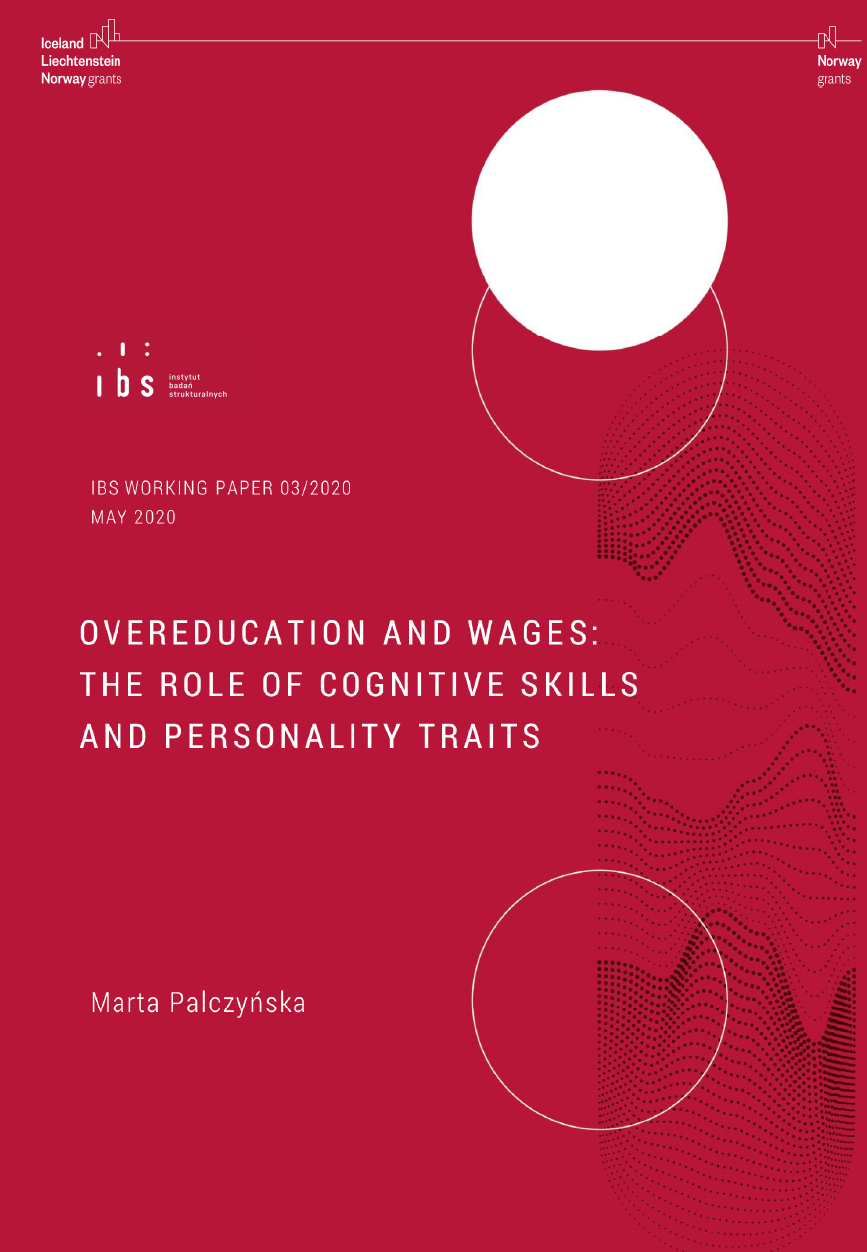This article investigates the role of personality traits and cognitive skills as potential determinants of overeducation and in explaining overeducation wage penalty. Using a representative survey of the Polish working-age population, with well-established measures of cognitive skills and personality traits, I find that accounting for personality and cognitive skills does not change the size and the statistical significance of overeducation wage penalty estimates. My results also demonstrate that personality is one of the contributors to the risk of being overeducated among workers aged 18 to 29 but not among people aged 30 to 68. Among younger workers, agreeable individuals are more likely to be overeducated while conscientious ones are less likely. Moreover, lower cognitive skills are associated with the probability of being overeducated.

This publication was created as part of the “Youth Employment PartnerSHIP” project, which seeks to combat unemployment among young people. It measures the effectiveness of instruments to support young people who aren’t working or studying in four countries: Poland, Spain, Italy and Hungary. The project is financed by Iceland, Lichtenstein and Norway through the EEA and Norway Grants Fund for Youth Employment and co-financed from the funds granted for science in 2018-2022 for the implementation of international projects. I would like to thank Jan Baran and Iga Magda for their insightful comments. I also thank the participants of the 2016 EALE conference and the Warsaw International Economic Meeting 2019 for their discussion and remarks.

